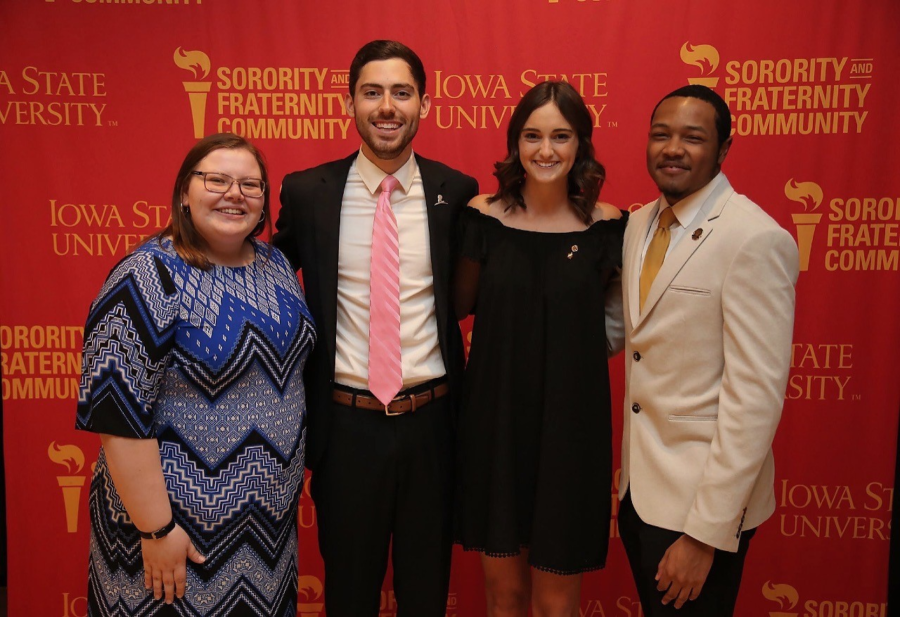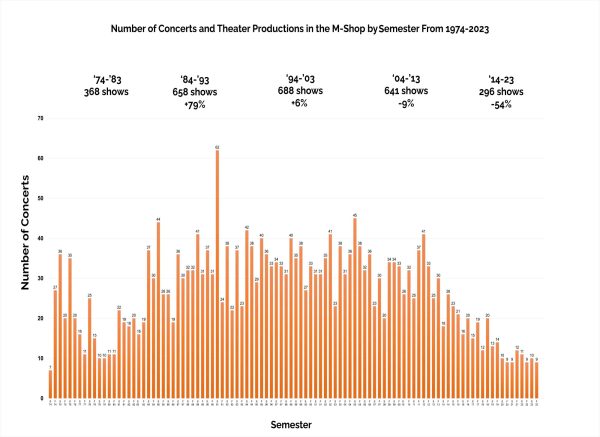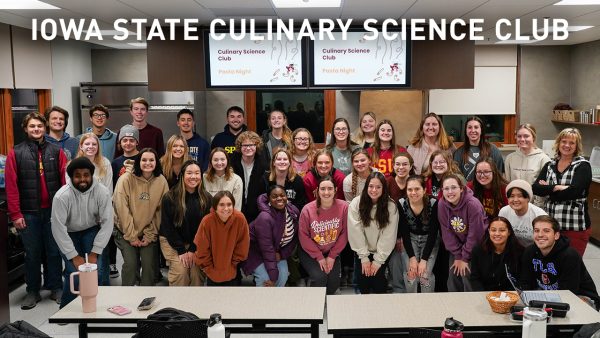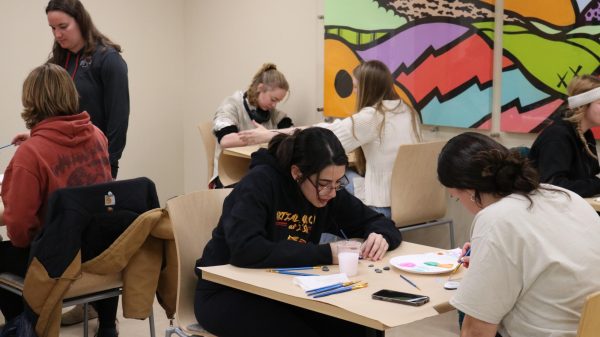Sorority and fraternity semester in review
From left to right: Multicultural Greek Council President Micaela Coate, Interfraternity Council President Zach Woodbeck, Collegiate Panhellenic Council President Abbey Bierma, National Panhellenic Council President Johnathan Hall.
December 10, 2019
Formals, philanthropies, recruitment events, Homecoming week, parent weekends and so much more. When looking to summarize the semester as a whole through the lenses of members of the sorority and fraternity community, these events are just a portion of what the community accomplishes and hopes to accomplish within the semesters to come.
The community currently doesn’t have any plans to implement new programs but hopes to strengthen programs that already exist.
“We’ve had a lot of change within the last couple of years, and we’re trying to find that balance of, how do we make these things effective in the way we want them to work?” said Billy Boulden, assistant dean of students and director of sorority and fraternity engagement.
One factor that has remained consistent semester after semester is the academic success of students involved with the greek system at Iowa State.
According to their website, those belonging to the sorority and fraternity community held an average GPA of 3.1, compared to the overall undergraduate average GPA of 3.11 last semester. A plan called the Greek Academic Achievement Plan was created in order to help students juggle academics with other events that require their attention with regard to their chapter.
A factor that the sorority and fraternity community is aiming to improve upon is the mental health resources available to those in their community. Boulden emphasized the fact that those living in their chapter houses oftentimes miss out on having leaders available to them who have extensive mental health training, whereas individuals who live in the dorms have community advisors or hall leaders who undergo such training.
“I think just talking about it is really hard,” said Abbey Bierma, graduate student and Collegiate Panhellenic Council president. “When [members] are struggling with stuff or they’re having a harder week, we have a really hard time at admitting it because no one wants to be the one like, ‘This is a lot for me right now, I need a night of just taking a break.’”
When it comes to chapter events, most of the time everything is done with a purpose. Whether it’s a philanthropy event with the goal of raising money, a recruitment event with the intention of gaining more members or events that encourage members to raise their GPA, the ideal that an event can exist for the purpose of having fun and not for any other reason gets lost among everything else.
“I think sometimes, too, we get so caught up in the rules, the regulations, the issues that are going on around campus that we forget that a sorority and fraternity is supposed to be fun,” Boulden said.
Discussing stigmas surrounding their community is something that the Interfraternity Council (IFC) at Iowa State is trying to debunk. A large topic for members and IFC President Zach Woodbeck, graduate student in business administration, is trying to reverse the typically negative stereotypes portrayed of fraternities in the media.
“We’re just scratching the surface, because the conversation hadn’t been started,” Woodbeck said. “But hopefully in the next few years they can get the ball rolling a little bit quicker than we are now. That’s been huge, and that’s where we’ve been able to collaborate outside the community too. We’re not mental health experts, so who is and who can we utilize to help educate us? But within fraternity leadership, we can at least start the conversations.”
Building and strengthening relationships within the IFC community is another factor that Woodbeck hopes will continue in semesters to come.
“Especially among chapter leaders, relationships have either been established that hadn’t been established before, or built upon,” Woodbeck said. “So we have a large group of presidents that will not only reach out to each other for resources and asking questions about challenges they’re facing or any advice when it comes to fraternity leadership, but they also reach out to each other to spend time with one another, and cross-fraternity collaboration has been huge for us in the past year.”
For the first time this year, Panhellenic members at Iowa State celebrated Panhellenic of Iowa Week, where chapters from across the state recognized and celebrated each other. Bierma stressed the fact that chapters at Iowa State are extremely grateful for university officials for providing them with on-campus resources that enable them to succeed and that they wouldn’t be able to do so without them.
As graduate students, both Bierma and Woodbeck have to disaffiliate after four years, passing along their titles as council presidents to other members.
“It gets hard because you do get attached to all the chapters, and then I still have to remember I’m council president; I have to make decisions and be unbiased in things,” Bierma said. “But in the best way, because I’ve fallen in love with all of the chapters so much. It’s hard to say goodbye, one hundred percent.”
Next semester, new council presidents will take their place, hoping to fulfill the roles former presidents have established and to leave a legacy of their own.
“No longer do I inspire them, they inspire me,” Woodbeck said. “I was able to tell them this at the end of the semester, but these are the strongest 30 fraternity presidents that I’ve ever seen, and this is my fifth year in fraternity life. And I’ve gotten to see other communities in the country and other councils in the country, but these 30 guys are top of the notch. And being able to see what they can do with their fraternity and recreate fraternity for me, that’s been an extremely rewarding experience.”
Boulden said one of his favorite parts of the semester is getting to know incoming council leadership and be able to immerse them into their new roles. However, connecting with those students who eventually become alumni is also a highlight that comes with his job.
“This is always a big transition time for us, so we have a whole new set of chapter presidents coming in, council officers coming into play and so it’s all exciting for me,” Boulden said.

















